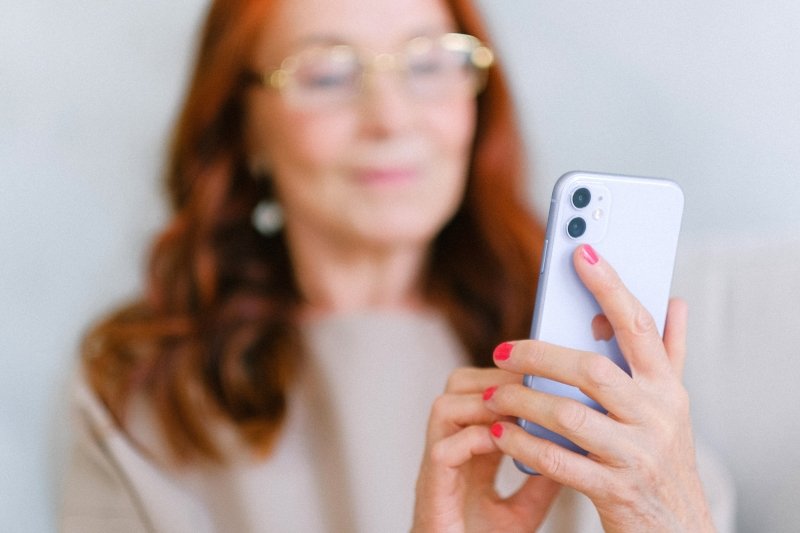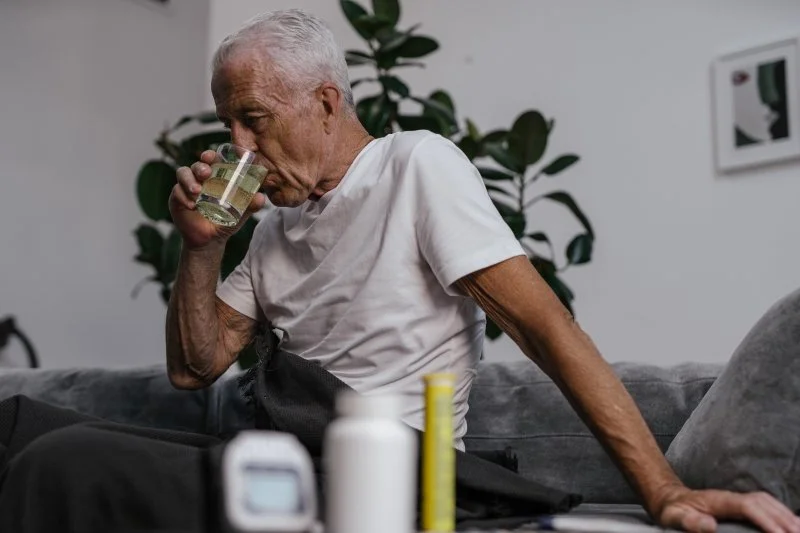Top 10 Benefits of Technology for Seniors
Top 10 Benefits of Technology for Seniors
How can seniors benefit from technology?
How Tunstall Integrates Technology into Connected Care solutions
The advancements in technology have helped millions of people around the globe. Today, technology is used in almost every aspect of daily life, including health and care. In the health and care sectors, technology has helped elderly people and persons with disabilities have a better quality of life by supporting their well-being, safety, and health.
According to the Australian Institute of Health and Welfare, the reported cases of disability in the country are increasing and they are often linked with the ageing population. In New Zealand, 1 in 4 of its citizens have a physical, sensory, learning, mental health or other impairment and 35% of people with disability are over 65 years old, says New Zealand's Office for Disability Issues. Difficulties in mobility and self-care combined with chronic conditions that hinder functional abilities have made technology necessary for a significant percentage of the population.
Technology in health and care can and has drastically improved the lives of many, including those with disabilities. These technologies include electric wheelchairs, hearing aids, braille displays, speech recognition software, prosthetic devices, alternative communication devices, GPS tracking devices, memory aids, health monitoring equipment, and any specialised medical equipment or devices for people who need support to lead more independent lives. People living alone often rely on technology to keep track of medications, monitor blood pressure and heart rate, communicate with family members, and other daily activities. This helps prevent falls, hospitalisations and emergency room visits.
How can seniors benefit from technology?
1. Can assist those with memory loss
People with cognitive disabilities, like Alzheimer's and dementia, can benefit greatly from technology in healthcare. According to Alzheimer's Society, people with dementia have found that incorporating products and services with technology in their daily activities as early as possible has helped them adjust to them more easily which means they can use it for longer.
Some people living with Alzheimer's Disease or dementia use digital voice and video recorders that can capture events and conversations to aid with their memory impairment. Even if a person doesn't have dementia, forgetfulness may be inevitable in the ageing process. Technology can help with remembering everyday tasks like grabbing keys, feeding house pets, or keeping track of errands and chores.
Related reading: 9 Ways to Create a Safe and Dementia-Friendly Home
2. Provides freedom of movement
When people think of technology, they often think of the most advanced software or even robots that can help people with disabilities. While these technologies are available, other examples of assistive technology are much simpler but still provide a huge, positive impact on the mobility of seniors, such as canes, crutches, and wheelchairs.
With these devices, the elderly can perform daily tasks such as buying groceries or going around the town. For people with disabilities, there are devices that meet various needs. There are electric wheelchairs that are designed for climbing stairs. For the visually impaired, some applications can be downloaded on their mobile phones equipped with navigation systems, helping them reach their destination with more autonomy. There are also personal alarms with GPS trackers, and personal safety apps to help people retain their independence and mobility.
3. Enhances communication
Hearing aids are often one of the first devices that seniors use. Hearing loss is often part of the ageing process but this shouldn't hinder the older generation from effectively communicating with their family and friends. Through these devices, older adults can regain and enhance their hearing ability.
Other devices that improve communication include voice recognition software, text readers, magnifiers, and more. Mobile devices and video call applications like FaceTime, Whatsapp and Skype are also user-friendly ways for people to stay in touch with their loved ones.
Related reading: 6 ways to keep in touch with your loved ones
4. Can help with medication reminders
Missing medication is a problem many older adults face and that can have a major impact on your health. There are applications and software that can be integrated into your mobile phone to make sure you are reminded every day about any necessary medication doses, checkups with your local medical practitioner, and other health-related activities for the day/week. “Push” notifications (alerts) can be set to trigger at specific times & days as regular reminders to help people who are self-managing their medication not forget.
5. Helps in managing health conditions
The aim of technology in healthcare has always been to improve people's lives, especially when it comes to their health. Technology can reduce the need for formal health and support services, long-term care and the work of care partners, but it still depends on the degree of medical assistance one needs. Technology allows people to live with minimal help from others and maintain their dignity. People who use devices typically experience less pain and depression and have fewer medical complications.
Learn more about our globally recognised Connected Health service and how it can help those living with long term health conditions here: https://www.tunstallhealthcare.com.au/healthcare
6. Assists with home safety and security
Devices such as smart doorbells, automatic lights, key safes, and smart smoke alarms are amazing gadgets that help maintain the safety and security of your own home. Smart doorbells allow people to see who is outside their door without looking through the peephole on the door. These doorbells equipped with cameras are linked to a mobile app so people can check who's ringing the doorbell anytime, anywhere. Automatic lights, on the other hand, are motion sensor-activated lights so seniors can always have a bright pathway at night to avoid any falls or trips. Even if the person forgets to turn off the lights, they will also turn off automatically when movement is not sensed for a set time which means electricity is saved.
7. Can help decrease stress levels
When confronted with the reality of ageing, some people often find themselves distressed by the limits their disabilities have set for their bodies. Some seniors often experience frustration, isolation, loneliness, and anxiety when they feel limited by their poor health conditions. Technology not only helps seniors with their physical predicaments but also ensures the elderly improve their mental health as well. When daily stressors brought about by ageing are eliminated, or at least diminished, seniors can enjoy their life to the fullest and decrease stress levels.
8. Allows easy access to healthcare providers
While technology hasn't made physical doctor appointments obsolete, as they should still be a significant part of your healthcare and maintenance, the latest technology has allowed elders to contact healthcare providers without having to leave the comforts of their own homes. Many doctors now offer telemedicine appointments where patients connect via video chat rather than having to travel long distances. There are also wearable devices that can connect you to medical professionals with the click of a button in case of medical emergencies.
Related reading: The Rise of Telehealth During the Pandemic
9. Helps stay connected to society
Because of all the above-mentioned benefits of technology, older adults fully utilising this technology in their daily lives will continue to enjoy a better quality of life. The disabilities that seniors often face because of ageing are no longer a hindrance for them to interact with their family and friends. Pursuing activities such as going to the groceries, eating out with friends, or even joining a sports club can be accomplished with ease. Accessible mobile phones are also one of the top choices of older adults as these devices ensure they are connected to their loved ones and friends, reducing the feeling of isolation.
Related reading: Social Connectedness: Your Prescription to a Healthier, Happier, and Longer Life
10. Empowers the elderly to live more independently
Technology helps seniors overcome the limitations imposed by ageing and disability. It gives them independence and freedom to do things they couldn't do before. With smart home appliances like smart thermostats, smart lighting systems, and smart doorbells, seniors can control their environment from the comfort of their homes. They can also monitor their health condition using wearable devices such as fitness trackers, activity monitors, and blood pressure cuffs. These gadgets allow them to take care of themselves with minimal supervision from their loved ones. Technology gives people the freedom to perform daily tasks and participate fully in the activities of everyday life.
How Tunstall Integrates Technology into Connected Care solutions
Tunstall Healthcare understands that technology is about helping you live your life to the fullest. Whether it’s mobility, communication, working or playing, our solutions help you do what you want to do. Tunstall has a line of advanced personal alarms that can be used as wearable pendants to ensure your safety at all times. These personal alarms give the wearers the freedom and peace of mind that should they need any medical assistance, they can access it 24 hours a day with just a press of a button.
If you need assistance in choosing from our Connected Care solutions, make sure to contact Tunstall Healthcare today and we'll be glad to help you out.
Keep reading: Accessing Assistive Technology through the NDIS – a complete guide








